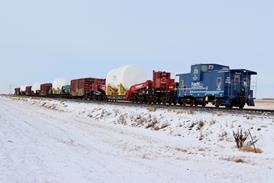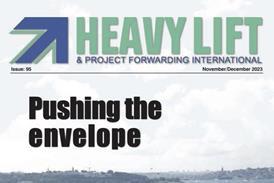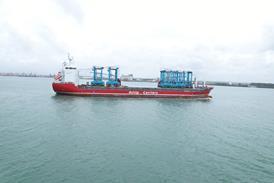December 18 - With US Congress nearing a deal to end its longstanding crude oil export ban, HLPFI considers the impact this will have on the languishing sector.
The US placed restrictions on the export of unrefined crude during the energy supply shortages of the 1970s. Pressure to lift the ban has been steadily rising as new drilling technologies unlocked the potential of shale oil formations, increasing the nation's output to record-breaking levels but putting negative pressure on prices.
Senate leaders from parties were nearing a deal on December 14, although resistance from House Democrats and some Republicans scuppered the deal.
Repealing the 40-year old ban is a top priority in a USD1.15 trillion spending bill for many Republicans; the opening of new markets would aid drillers suffering from crude flooding the market, which the party claims is contributing to the sub USD40 per barrel oil price.
House Democrats are open to lifting the embargo although this will surely come with strings attached, most likely in the form of subsidies to green energy developers. The White House opposes lifting the ban, however, it too wants to see Congress make investments into renewable energy. There seems to be enough political will for an accord to be struck.
The US exported a record 586,000 barrels of crude a day in April, more than OPEC members Ecuador and Libya - a testament to the innovations being made in the sector. That dropped to 409,000 barrels a day in September, which forecasters attribute to falling rig counts.
Currently, Federal law prohibits the export of unrefined crude, with a few exceptions including Canada.
While cheap oil certainly benefits many Americans - particularly at the fuel pumps - hundreds of thousands of jobs are being lost from a once booming industry. Meanwhile US big oil players, including ExxonMobil, Chevron and ConocoPhillips have seen millions wiped from their respective stock prices. US energy companies that invested heavily when oil prices were USD100 a barrel face ominous debts - defaults are on the rise.
However, a senior figure within the Organization of Petroleum Exporting Countries (OPEC) - secretary general Abdalla El-Badri - dismissed the potential impact of repealing the US oil export ban. "The net effect of export of American oil on the market is zero," he said. "This will have no effect on the price because the US is still is an importing country." The US could export light oil from shale formations, while still importing heavier crude, observed El-Badri.
At its latest meeting, OPEC confirmed it would refrain from cutting output and maintain its policy of defending market share. However, reports suggest the Vienna meeting was fraught with controversy and deep divides are emerging within the cartel
Less-affluent OPEC members, including Algeria, Angola, Nigeria and Venezuela, are desperate to cut output in a bid to lift prices - and warned a barrel could sink to USD30 if the current strategy is maintained. The Gulf States are steadfast in the opinion that crowding out higher cost producers is the best plan of action.
The January/February 2016 edition of HLPFI will include a report on the oil and gas industry, and the challenges faced by the heavy lift and project logistics providers.















